Educating Bartenders Worldwide.
By Beverage Trade Network
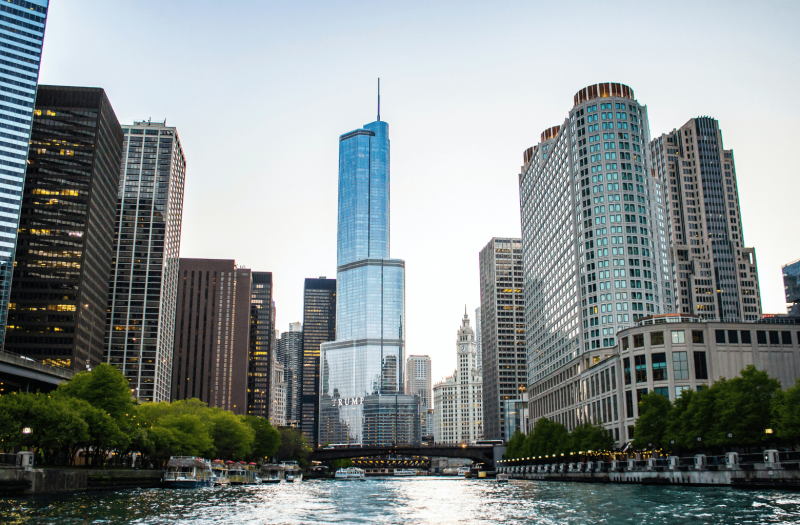
Chicago is long known for its traditional culture, modern architecture, mouthwatering culinary dishes, and now for its beverage industry marching towards its triumph future. In 2003, Robb Report named Chicago the country’s “Most exceptional dining Destination” and in 2008, Maxim honored Chicago with the title of “Tastiest city”.
In 1880, for instance, the former lieutenant governor of Illinois, William Bross, told members of the Chicago Historical Society that, “He who is the Author of Nature selected the site of this great city.” In 1923, in an address to the Geographical Society of Chicago, a University of Chicago geographer, J. Paul Goode, argued that the city’s location made its growth inevitable. His talk was titled “Chicago: A City of Destiny.”
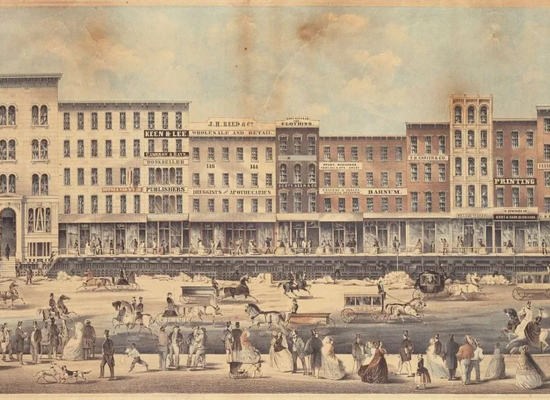
Raising a block of buildings on Lake Street, Chicago, in 1857
image source: Chicago Historical Society
By the end of the century, a deserted swamp has been transformed into a modern metropolis of 1.7 million, known worldwide for its efficient technology, vibrant music scene, iconic neighborhoods, and soaring skyscrapers.
Chicago’s rise was so sudden and so breathtaking that many locals & observers concluded it must have been preordained by nature or God, a view that bloomed the 19th-century belief in the inevitability of American expansion called Manifest Destiny.
To discern a deep understanding of Chicago’s future, we have inferred these 8 trends that have bestowed or will for its clover.
According to the Distilled Spirits Council of the United States (DISCUS), the U.S. spirits market share has surpassed beer. From 2000 to 2022, the spirits revenue market share has bloomed from 28.7% to 42.1%. DISCUS reports that beer has a 41.9% market share. In which Illinois craft brewing industry alone contributed over $8.7 billion to the country’s economy, supporting over 84,000 jobs.
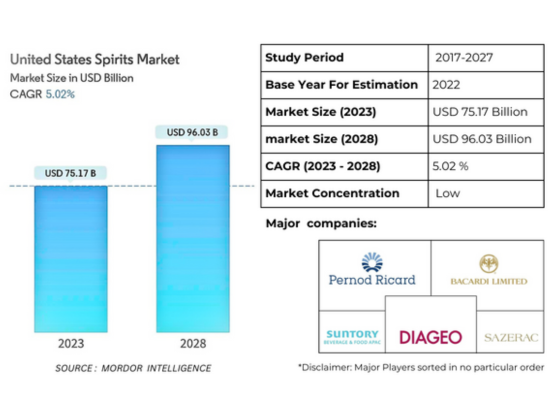
Such notable achievements unlocked numerous Economical aids such as :
Employment: The industry employs a wide range of individuals, from brewers and distillers to distributors, retailers, and hospitality workers.
Diversity: Chicago boasts a diverse beverage industry, encompassing distilleries, wineries, kombucha producers, and more. This variety catered a wide range of consumer preferences and contributes to the city's vibrant culinary scene.
Craft Focus: Chicago is particularly known for its thriving craft cocktail scene, with over 57 distilleries within the city limits. These distillers produce a wide variety of styles and contribute to the city's reputation as a drinking destination.
Distribution and Exports: Chicago's beverages are not just enjoyed locally; they are also distributed throughout the state, nationally, and even internationally. This expands the industry's reach and economic impact.
Especially during the pandemic, consumer interest was driven towards premium luxury spirits brands and accumulated to drink outside of the bar in the form of RTDs.
Premium brands had a surge of 4% in 2022 compared with 2021, according to DISCUS.
The organization informed the trend has positivity affected consumers’ willingness to spend more on premium bottles, and has led to an increase in sales of tequila, Mezcals, American whiskey and other popular spirits.
DISCUS reported, Tequila sales rose 21%, as American whiskey climbed 19% in 2022; greatly popularizing the beverage industry.
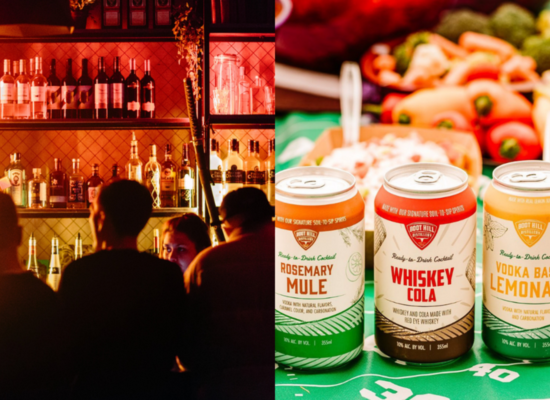
Image source : Unsplash(left) / Boot Hill distillery(Right)
Simultaneously, RTDs - spirit based cocktails - marched swiftly along with this trend. It grew 35.8% to $2.2 billion in sales in 2022.
Boot Hill Distillery Vodka Basil Lemonade US based distillery had a great season serving major bars & saloons across Chicago, Kansas, etc. Entering the market with a line of flavor premium RTDs made with authentic vodka & distilled flavor.
Until now non-Alcoholic or low Abv drinks were seen as club soda or effervescent drinks and lime. The new generation runs crafty and innovative, including bars & saloons curating nonalcoholic cocktail menus and the rise of community in sober social groups organizing events like NA Day, a nonalcoholic beer, wine and spirits festival debuting in month of January.
The grace of Non-alcoholic or Low ABV beverages has numerous names such as The dry movement, The NA movement, Sober curious.Interesting the trend holds its own community that is Adult Nonalcoholic Beverage Association, which was formed in 2021, counting 73 companies as members. Imprinting “Non-alcoholic” or “Low-ABV” on their packaging to promote awareness.
Renowned US platform Drizly reports, the non-alcoholic ‘spirits’ sector is one of its fastest-growing subcategories, with more than 200% share in 2021. Sales of Zero to non-alcoholic ‘spirits’ on alcohol e-commerce platform Drizly crossed sales by 290% in 2021, gin being sold the most.
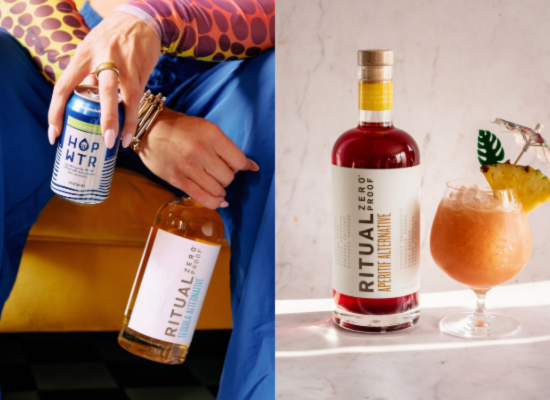
Image source : Ritual Zero proof
Among Drizly’s top 5 Non-alcoholic drinks includes Bartender Spirits Awards 2023 Double Gold Medal winner Ritual Zero Proof Aperitif Alternative with an astonishing 98 points on board.
“In 2021, the peak share for non-alcoholic spirits throughout the year was in January, suggesting that dry January will drive strong sales for this category,” says Paquette.
Midwest’s initiative towards sustainability & local sourcing are a good sign to drink sustainably, as we focused more on Drink-Responsibly.
In 1987, the UN Environment Commission headed by Gro Harlem Brundtland defined sustainable development as “development that meets the needs of the present without compromising the ability of future generations to meet their own needs.” Following words set the action for future events where sustainability is focused.
BEG Brazilian Boutique, a Iconic winner from Bartender Spirits awards 2023 has made a significant impression on the sustainability act.
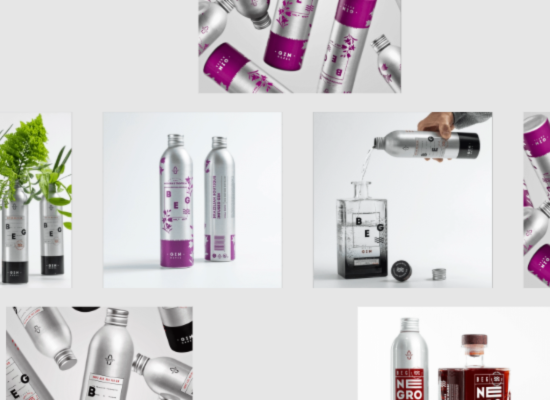
Image Source: BEG GIN
With 10 years in industry, BEG made footsteps towards creating a sustainable impact as they achieved milestones.
With Motive to use innovation, sustainability and a deep commitment to the planet together, BEG distiller shared a refill project, leading a bold move towards green & eco tomorrow. Their Refill bottle is a true sustainability icon made from 100% of aluminum, being 9 times lighter than usual glass bottles, considerably reducing carbon footprint.
Using aluminum is a great choice since its ability to recycle is infinite, making it an Eco-conscious choice. After use these bottles return to their market in their recycled form thus closing the sustainable cycle.
Since its launch in 2021, each BEG aluminum bottle that is being purchased represents 1.3 kg less co2 in the atmosphere which contributes in many ways as per beggin.com.
Also, Chicago based distillers are focusing on local sourcing, supporting regional farmers and reducing carbon footprints.
Chicago, the 3rd largest city of America, is the hometown of numerous well known celebrities. From athletes to musicians, models to movie stars, many are baking brands forging their own flavor profile, distilleries, etc . Having a significant impact on bars & saloons with stardom demand from drinkers.
Iconic Transformer actor Mark Wahlberg launched the tequila brand Flecha Azul earlier last year with Mexican co-founder Aron Marquez. The pair has been traveling across the country promoting the brand, which Wahlberg extolled as “the drink of the summer.”
“I saw there was lots of success in the celebrity tequila space and that intrigued me,” said actor Mark Wahlberg during a panel at the Chicago conference.
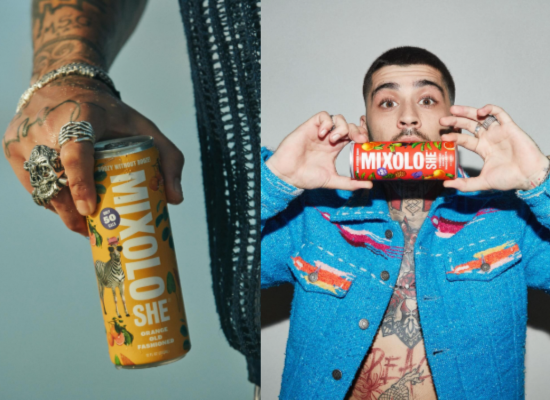
Image Source: Mixoloshe
Mixoloshe was founded in 2022 by its Female led CEO Kristina Roth in collaboration with famous award winning musician Zayn Malik. Mixoloshe’s impact in Beverage industry was astonishing since the announcement of Zayn being its Chief Creative Officer.
Mixoloshe’s Orange Old Fashion was presented in Bartender Spirits Awards 2023 which left judges astonished by winning 95 points & a Gold Medal. Tasting notes were as follows - ‘Orange and cinnamon on the nose. Pleasant effervescent mouth feel. Balanced light bitterness with a slight sweetness and a clean baking spice finish.’ Following footsteps to be a change in sustainability & supporting local farmers is what’s empowering Mixoloshe.
Other brands such as The Rock’s teremana tequila, Código 1530 Tequila by George Strait, Brother’s Bond Bourbon by Ian Somerhalder & Paul Wesley and more have a significant contribution towards shaping the beverage industry.
Leveraging technology to its full potential has been initiated by professionals to enhance customer experience. Use of Virtual reality, conducting virtual spirits tasting, virtual distillery tours has brought a new face to the beverage industry. During amidst of Covid-19, restaurants & bars were encouraged to stretch their boundaries & go beyond reality to provide drinkers a finest experience.
In 2017, Baptiste & Bottle, a Conrad Chicago based restaurant, offered eager drinking enthusiasts a chance to grab on a virtual reality experience as part of a $95 cocktail.
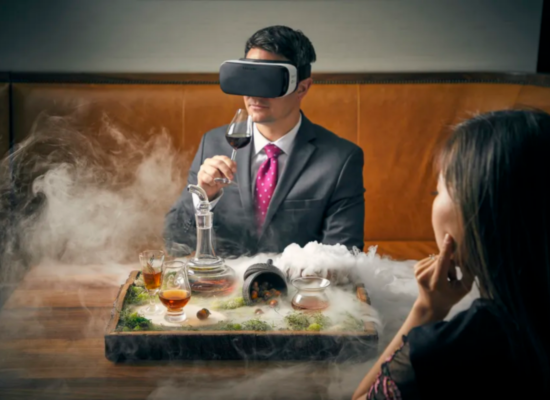
Image source: Baptiste & Bottle
As per Forbes, A simple drink is proposed, using Bodegas Tradicion 30-year Oloroso Sherry and Macallan Rare Cask scotch. The glasses come in a wooden box with moss and vegetation. The set-up represents a forest where Macallan takes wood for its casks. Michael Fawthrop, Conrad's beverage director, told Forbes that he wanted to create a memorable experience for guests at the luxury hotel.
Altogether VR isn’t new to the world but it still left a benchmark in the beverage industry. Similarly in 2017, a London bar innovated the world’s first “augmented reality cocktail menu.”
Rise of Craft spirit was unique on its own. Craft spirits stand out in the beverage industry due to its exceptional innovation done by skilled bartenders & mixologists, showcasing a spectrum of flavors from uniquely infused spirits to delightful fruit blends. The allure for consumers lies in the perceived luxury of these products, attributed to their diverse offerings and artistic expressions.
This popularity surge can be attributed to several factors. Firstly, craft spirits have responded to the rising consumer awareness of sustainability. Many brands within this category prioritize eco-friendly practices, particularly in their packaging and material choices. This aligns seamlessly with the contemporary consumer's emphasis on making eco-friendly conscious decisions.
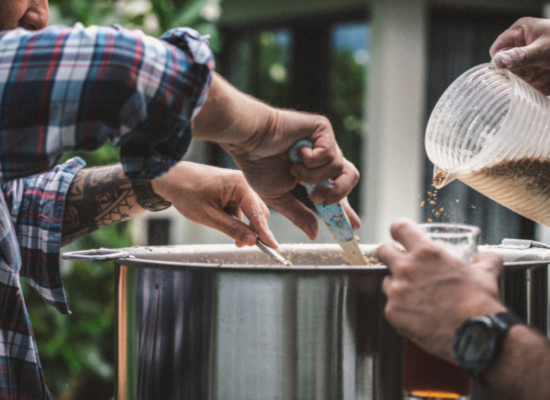
Image source: Unsplash
In essence, the success of craft spirits is a harmonious blend of taste, artistry, sustainability, and the growing desire to patronize businesses deeply rooted in local communities. This multifaceted approach positions craft spirits as a compelling choice in the ever-evolving landscape of consumer preferences.
Alley 6 Rye Whiskey, craft spirits holds 92 points & a Golden Medal from Bartender Spirits Awards 2023. It's Tasting notes - Rye and malt on the nose. Maple syrup, toasted grain, and ginger spice on the palate. Dry spicy finish.
In summary, the impact of the craft spirits movement on Chicago's future includes economic growth, enhanced tourism, a commitment to sustainability, strengthened community bonds, and a more diverse and vibrant culinary landscape.
These 7 trends doesn't only shape Chicago's future alone but the entire America. Visit our website to check our more of our blogs - Blog archive
[[relatedPurchasesItems-31]]